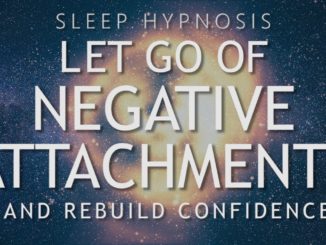
In the last decade, the practice of meditation has moved into the mainstream. With meditation’s growing and more generalized acceptance, there is increasing discussion about the possibility of meditation replacing sleep entirely. To understand fully the relationship between meditation and sleep, we must examine each to determine whether it is possible for meditation to supplant the body’s need for sleep.
Many people mistakenly confuse the rest benefits of meditation with those obtained from sleep. Although complementary, they are vastly different. To understand the synergy between sleeping and meditation we must first understand the differences.
Our bodies require sleep for rejuvenation and repair. During sleep, we release hormones that help us grow, form white blood cells, avoid anemia, fight disease, strengthen the immune system, maintain proper body weight, produce skin cells and avoid premature aging.
Meditation, from the perspective of a layperson, is simply a period of altered consciousness when the brain slows down to a relaxed state. Using meditation, a sense of peacefulness, deep physical relaxation and mental clarity can be experienced in just a fraction of the amount of time required for a nap. Meditation produces a state of mental bliss and helps the mind relax, leading to the physical benefits associated with reduced stress. However, because a meditative state is a state of “mental wakefulness,” it does not help perform the physical repair and rejuvenation related tasks that happen only when the mind is asleep. Attempting to replace sleep with meditation would eventually lead to memory loss, confusion, high blood pressure, weight gain – even a compromised immune system that leaves one’s body vulnerable to illnesses.
Utilized properly, meditation and sleep will complement each other. If you sleep well you can meditate deeper, and conversely if you meditate regularly, you can sleep much better. Meditation allows the mind and body to experience deeper sleep and receive rest because the mind prepares the body to submerge into a deep sleep without a period of “cooling down.” This helps prevent tossing and turning and increases REM sleep, which is critical to maintaining good health and facilitating the growth and rejuvenation of the physical body.
In a fast-paced society where people search for time short cuts, meditation cannot and should not replace sleep. However, if regularly practiced, meditation will greatly enhance the quality of sleep and decrease the amount of it a body needs.
Proudly WWW.PONIREVO.COM



